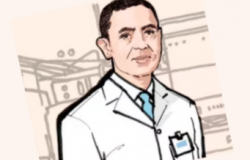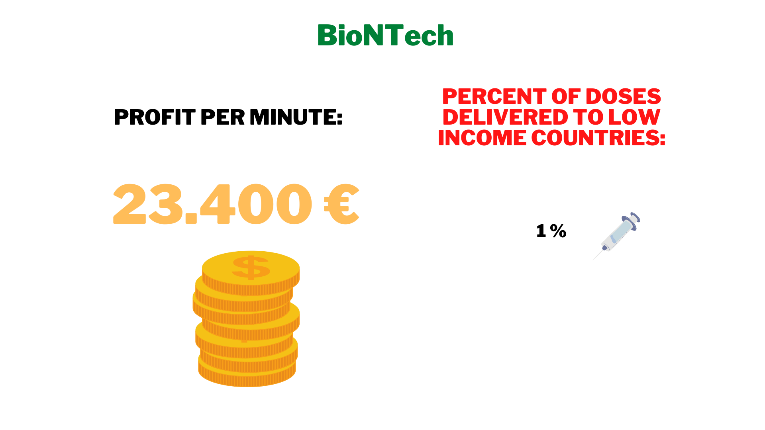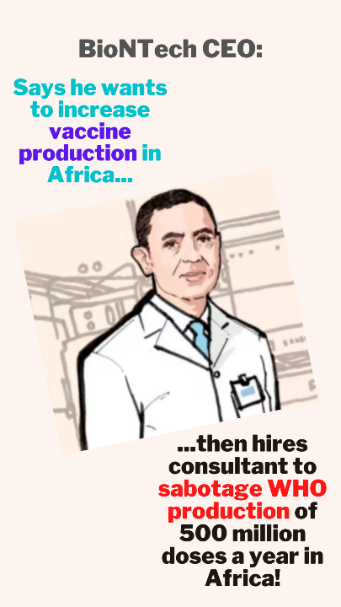Why you should change your mind about the start-up that invented the Covid vaccine

This blog by Andreas Brox was written as part of the LSE's DV455 MA module which GP's Online Editor co-teaches with Duncan Green. It is reposted here as its a great bit of impactful writing that should be shared with a wider audience. Andreas also welcomes feedback.
It has been two years since this fricking pandemic has started and as everyone else, I am pretty sick of hearing about it. Thankfully, it feels very much like it is over in Germany, where I am from, or anywhere else in Europe. So, no need to bother about this Covid thing anymore, right? There are other pressing issues, sadly, in this world right now anyways.
Well, I want to convince you to think about it one more time. I promise there is something you should know about BioNTech, the start-up whose success story of inventing the world’s most effective Covid vaccine everyone in Germany has heard many times before.

The story usually told about BioNTech is the one of its two founders: the husband-and-wife Uğur Şahin and Özlem Türeci. It tells of Şahin’s foresight in spotting that the coronavirus will become a pandemic. And of his conviction to be able to use mRNA technology to develop a vaccine. Both ‘proved prophetic’. German media has celebrated the couple as ‘world saviour’ and ‘heroes’.
Let me tell you a different story of BioNTech. As you will know, a shockingly low 15 percent of people in low-income countries are vaccinated. This is no news. But it continues to be an appalling reality. You wonder why? One reason: BioNTech has delivered less than 1 percent of its vaccines to these states. It is no coincidence. Poorer countries were being disadvantaged with ‘abusive’ conditions when distributing vaccines. Meanwhile, BioNTech is making profits of 23.400 Euros a minute.
 But the down-to-earth founders Şahin and Türeci are surely not all about the profits, are they? Şahin has said he wants to increasing production in Africa, because it is so important to ending the pandemic. In an attention catching announcement he presented his solution: factories in sea containers that can easily be shipped around the world. Sounds great, no? Well, a WHO expert called the plan to simply drop these on a different continent ‘pure nonsense’.
But the down-to-earth founders Şahin and Türeci are surely not all about the profits, are they? Şahin has said he wants to increasing production in Africa, because it is so important to ending the pandemic. In an attention catching announcement he presented his solution: factories in sea containers that can easily be shipped around the world. Sounds great, no? Well, a WHO expert called the plan to simply drop these on a different continent ‘pure nonsense’.
The WHO itself is working to help African companies produce vaccines. Something BioNTech has refused to support. It argues that manufacturers in the Global South are not capable of producing their vaccine. This is simply false. A study found 120 companies in Africa, Asia and Latin America that could produce mRNA vaccines.
Instead of supporting other producers, Şahin’s company chose to actively undermine the efforts by the WHO. It hired a consultant, which spread false claims about the WHO project. A project supported with German taxpayers’ money. At the same time, it advertised BioNTech’s container factories. Not exactly what someone would do who only cares about ending this pandemic, is it?
Uğur Şahin and Özlem Türeci may be great inventors. But they are not world saviours! Their company BioNTech is actively working against ramping up vaccine production in Africa. They secure their own profits, not the world’s well-being.
Not surprising to you?
Let this post remind you of this the next time you hear that ‘voluntary technology transfers’ are the key to ending the pandemic. It is time that the German government obliges producers to share their knowledge. Others have done so already: Moderna is sharing its vaccine recipe. And more than 100 countries are supporting a temporary suspension of the patents on vaccines. Among them the US and France. You think Germany can do the same? Tell your MP about it or share it online!
Andreas' profile: I am an open-minded master’s student, with ambitions to work in development policy. My interest in tackling global inequalities has led me to pursue an MSc in Development Management at the London School of Economics (LSE). My thesis explores development agencies’ climate change adaptation practices.


